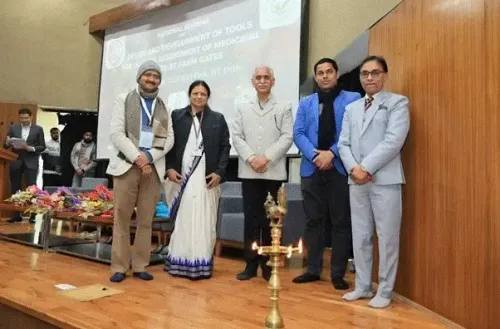Is Gen Z Really Drinking Less Alcohol and What Health Benefits Could Follow?

Synopsis
Key Takeaways
- Generation Z is drinking less alcohol.
- Significant public health benefits may follow this trend.
- Millennials are also consuming less compared to Baby Boomers.
- Understanding these trends can inform future health strategies.
- Focus on high-risk groups is essential.
New Delhi, Oct 7 (NationPress) A remarkable trend is emerging among younger generations, especially Generation Z, who are increasingly distancing themselves from alcohol consumption, as highlighted by a recent study published on Tuesday.
Researchers from Flinders University in Australia have discovered that Gen Z is instigating a cultural transformation that may significantly alter the drinking habits of society, potentially leading to substantial public health improvements if this trend persists.
According to the study, which appeared in the journal Addiction, despite the typically low rates of alcohol abstinence during early adulthood, individuals from Gen Z display a greater propensity to refrain from drinking compared to older generations.
Moreover, this generation not only tends to abstain more frequently but also consumes markedly less alcohol on a weekly basis than their older counterparts.
Lead author Dr. Gianluca Di Censo from Flinders' College of Medicine and Public Health stated, "Our findings reveal that throughout their lives, Gen Z individuals are almost 20 times more likely to choose not to consume alcohol compared to Baby Boomers, even when accounting for various sociodemographic factors."
Dr. Di Censo further emphasized, "This isn’t merely a passing trend; it appears to represent a lasting behavioral shift that could yield long-term public health advantages."
The research team examined over two decades of data from more than 23,000 Australians, uncovering a rise in alcohol abstention and a decline in weekly alcohol intake, particularly among younger demographics.
Interestingly, millennials also reported lower drinking levels compared to Baby Boomers, indicating a broader cultural transition away from alcohol consumption.
While millennials and GenX may drink more per occasion than Baby Boomers, their overall weekly alcohol consumption remains lower, suggesting that although binge drinking is still a concern, regular heavy drinking is on the decline.
The study further revealed that the silent generation, individuals born before 1946, exhibits the highest levels of weekly alcohol consumption, surpassing even Baby Boomers, indicating that while younger generations are drinking less, older adults may still face risks associated with alcohol.
The researchers believe that understanding these generational trends could play a vital role in shaping future public health strategies.
Dr. Di Censo remarked, "By grasping the factors contributing to the decline in alcohol consumption among younger populations—whether they be economic pressures, evolving social norms, or policy modifications—we can leverage that insight to encourage healthier behaviors across all demographics."
The team advocated for policies such as minimum pricing on alcohol, advertising restrictions, and targeted health campaigns to further reinforce these positive trends.
They also highlighted the necessity of focusing on high-risk groups, including adolescents who engage in binge drinking and middle-aged adults who consume significant quantities weekly.










